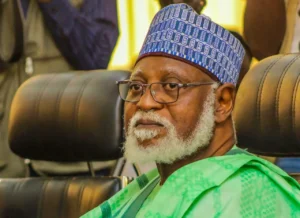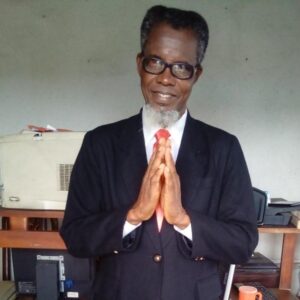THE IMPLICATIONS OF 100 DAYS OF FASTING FOR NIGERIA: A CALL FOR REFLECTION

THE IMPLICATIONS OF 100 DAYS OF FASTING FOR NIGERIA: A CALL FOR REFLECTION
The recent declaration of a 100-day fast ing period for Nigeria by Pastor Enoch Adeboye, the General Overseer of the Redeemed Christian Church of God, has sparked a significant conversation about the role of faith in addressing the nation’s challenges.
While fasting is a deeply spiritual practice that many believe can lead to divine intervention, it raises critical questions about the effectiveness of such measures in the face of systemic issues plaguing the country.
Many Nigerians have long held onto the belief that God is faithful and that divine intervention is possible. However, the question arises: has God not already been faithful to Nigeria? The nation is endowed with abundant natural resources, a rich cultural heritage, and a resilient populace. Yet, despite these blessings, Nigeria continues to grapple with severe issues such as corruption, insecurity, poverty, and inadequate infrastructure.
The call for an extended period of fasting suggests a reliance on spiritual solutions to address these complex, multifaceted problems. While prayer and fasting can be powerful tools for personal and communal transformation, they should not replace the need for tangible action and accountability in governance.
Fasting for an extended period, especially for 100 days, can have serious health implications. While many may approach this with the intention of spiritual growth, it is essential to recognize that prolonged fasting without proper guidance can lead to malnutrition, dehydration, and other health complications.
For a nation already facing significant health challenges, encouraging such a practice could exacerbate existing issues. Vulnerable populations, including the elderly, children, and those with pre-existing health conditions, may be particularly at risk. It is crucial for religious leaders to consider the physical well-being of their congregants and the broader community when promoting such
The call for fasting can also be seen as a form of religious betrayal if it distracts from the pressing need for social justice, good governance, and civic responsibility. When faith leaders emphasize spiritual practices over practical solutions, they risk fostering a culture of passivity among their followers.
Nigerians must be encouraged to engage actively in societal issues, advocating for accountability and transparency from their leaders. The notion that prayer alone can solve systemic problems can lead to disillusionment and a sense of helplessness among the populace.
While faith is an essential aspect of many Nigerians’ lives, it should be complemented by action. The challenges facing Nigeria require a holistic approach that includes spiritual, social, and political dimensions.
Religious leaders have a unique platform to inspire their followers not only to pray but also to take action—whether through community service, advocacy, or participation in the democratic process. Encouraging congregants to engage with their communities and hold leaders accountable can lead to meaningful change.
The declaration of a 100-day fasting period for Nigeria by Pastor Adeboye is a call to reflection on the role of faith in addressing the nation’s challenges. While spiritual practices can be powerful, they should not overshadow the need for practical solutions and active engagement in societal issues.
As Nigerians navigate these turbulent times, it is essential to strike a balance between faith and action, ensuring that the pursuit of spiritual growth does not come at the expense of health and civic responsibility. In doing so, the nation can work towards a future that honors both its spiritual heritage and its potential for progress.
A CALL TO LOOK INWARD
By Amb. Dr. Samson Joseph Iriruaga.




